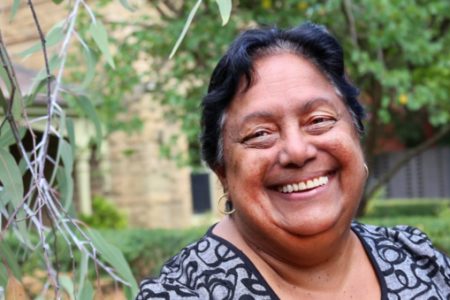Late last year, I had the privilege of representing the Uniting Church at the annual conference of Te Hahi Weteriana o Aotearoa (the Methodist Church of Aotearoa New Zealand) at which they celebrated their 200th anniversary. It was a joy to join with a partner church to celebrate with them.
One of the values of visiting with a partner church is the opportunity to learn from them, to see the things they value and gain some insight into how they organise their life together in order to reflect their understanding of the call of God and the demands of the gospel.
Te Hahi Weteriana o Aotearoa have committed to being a bi-cultural church that honours the Te Tiriti o Waitangi in all they do. This is expressed in two equal parts of the whole, the Māori council and the non-Māori council. There is equal representation on all whole of Church committees and each council has the agency to determine what is best for the life they have sole responsibility for
While Indigenous peoples around the globe share much in common they also have very real difference that mean we cannot simple take something from another place and imagine it will work here. At the same time, I can see real value in thinking about how we could adapt the idea of a land story to our context and want to invite those in the Uniting Church who own or have beneficial responsibility for property to consider doing a country or land story.
Deciding to do a land story needs to be discussed with the responsible Council and others to ensure people are interested in, and willing to consider, appropriate responses to the story that the country tells. It will require a group of people who are committed to doing the work of finding out the story of country and property and what they are saying to each other. And it requires a commitment to act with justice in response to what is learnt.
It is not work to be rushed and sensitivity needs to be given to the different stories and perspectives that might emerge.
How might you begin? Learning from what I have gleaned from our friends in Aotearoa I think there are three processes.
One process is see if you can make a connection with the First Peoples who have custodianship of the land on which your property sits. Over time, if a relationship develops you can ask them both about the particular property you occupy and the stories of their country, of its creation and how they have cared for it over millennia.
Another process is to gather what is known from archives, minutes, land titles and so on. How was the property acquired? What buildings have been added?
A third process is to engage in theological reflection. Reflect on creation and on the creations stories of First Peoples from your area. Reflect on stories of land, country, dispossession and occupation in Scripture, in Christian history and in the history of these lands.
When you have discovered the story of country, property and land in your place there needs to be discernment in the community about what response will be made. How will the truth of the story be told in ritual, in public display, in lament, prayer and proclamation? How will the truth of the story be told in return of land, compensation, payment of rent, or other recompense? To whom will the story be told? To whom will recompense be made: to the traditional owners, to Congress, to other Indigenous groups? How is this process guided by the local First Peoples and by Congress?
This is not easy work, and it will demand much of whoever chooses to undertake such a land or country story. You should not remain unchanged from this sort of work. But it offers the possibility of justice, healing and restoration. It offers the possibility of a gospel response to property holdings, dispossession and land injustice.
Sharon Hollis
President, UCA Assembly



